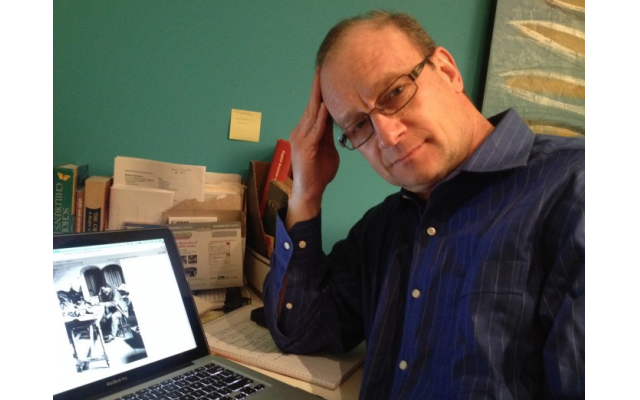What Would You Have Done?
When you hear an anti-Semitic remark, you have an instant to decide whether, and how, to respond.
Dave Schechter is a veteran journalist whose career includes writing and producing reports from Israel and elsewhere in the Middle East.
My previous column — “The Necessity of Anti-Semitism Rallies” — was set for publication when a friend texted me about what she and her husband had experienced the night before.
Their “very strange encounter,” as she called it, became the basis for this column.
As you read on, ask yourself: What would I (probably) have done? What might I wish later that I had done instead?
We’ll call the wife “M” and her husband “A.” On a recent Saturday night, these long-time friends of ours attended a musical performance on the campus of a large performing arts center in Midtown Atlanta. (I am not naming the venue because what transpired had nothing do with that facility, though it should be noted that admission requires proof of vaccination and wearing a mask.)
The couple — both have been vaccinated for COVID-19, including booster shots — waited in the arts center’s parking garage for an elevator. When the door opened, none of the four people already inside were wearing masks.
“M,” who has asthma, was masked and reminded “A” to wear his. They stood in the front of the elevator car, facing the doors.
Another passenger, a woman, spoke up and said that she had a mask in her pocket. “M” replied that she was concerned that “A” wear his.
At which point, as “M” recounted the encounter, “One of the men in the elevator made a comment about Nazis and then commented that he had his ‘Jewish papers.’”
The woman, whom “M” concluded was elevator man’s wife, told him to stop spouting off. (Maybe this is something that he has heard from her on other occasions and on other subjects.)
“M” and “A” remained silent and facing front. When the doors next opened, they walked off, leaving behind elevator man — but not the ugly memory.
“M” had no doubt that the remark was antisemitic. Perhaps being generous, “A” suggested that maybe elevator man meant only to equate the requirement to provide proof of vaccination to Nazi Germany requiring Jews to carry identity cards listing their religion.
Regardless of whether “A” was correct, “M” certainly was. Comparing prudent public health requirements to Nazi oppression, while specifically expropriating Jewish suffering to support that linkage, is antisemitic.
In hindsight, “M” was upset with herself because, having been so “absolutely flabbergasted,” she did not rebuke elevator man. She was upset, furthermore, by the realization that we live in an environment where someone can be comfortable spouting off in public about carrying his “Jewish papers.”
This type of claptrap has become all too common, whether it comes from the mouth of some proud boy wallowing in the gutter of civil discourse or from that of an unrepentant member of Congress.
So, in the same situation, would you have . . .
Stood silently facing the elevator doors, swallowing your anger, not wanting a potentially ugly confrontation?
Turned around and smacked elevator man across his mouth. Momentarily satisfying as that might have been (and you may find the thought of doing that momentarily satisfying), it also might have sparked a physical altercation in a small, enclosed space.
Glanced over your shoulder at elevator man’s wife and, looking her in the eye, said thank you?
Turned and calmly explained to elevator man that the Nazi law requiring those identity cards was a step toward the eventual extermination of several million men, woman, and children only because they were Jewish?
Turned and told elevator man that, being Jewish, you were offended by his remark? (You may want to consider two versions of this question, one where the doors are open and the other with the doors closed.)
Waited until you stepped out and then, just loud enough for elevator man to hear, told your spouse/partner that you couldn’t wait to tell the rabbi about the antisemitic remark you heard?
I would like to think that elevator man was insensitive out of ignorance, that he thought he was being funny by parroting something that he had seen on the internet, heard on radio, or watched on cable television. I would like to think that he has scant knowledge of the Holocaust and has had little contact with Jews. I would like to believe that because the alternative — that he doesn’t like Jews and doesn’t mind who knows it — is more difficult to address.
So, what would you have done?




comments